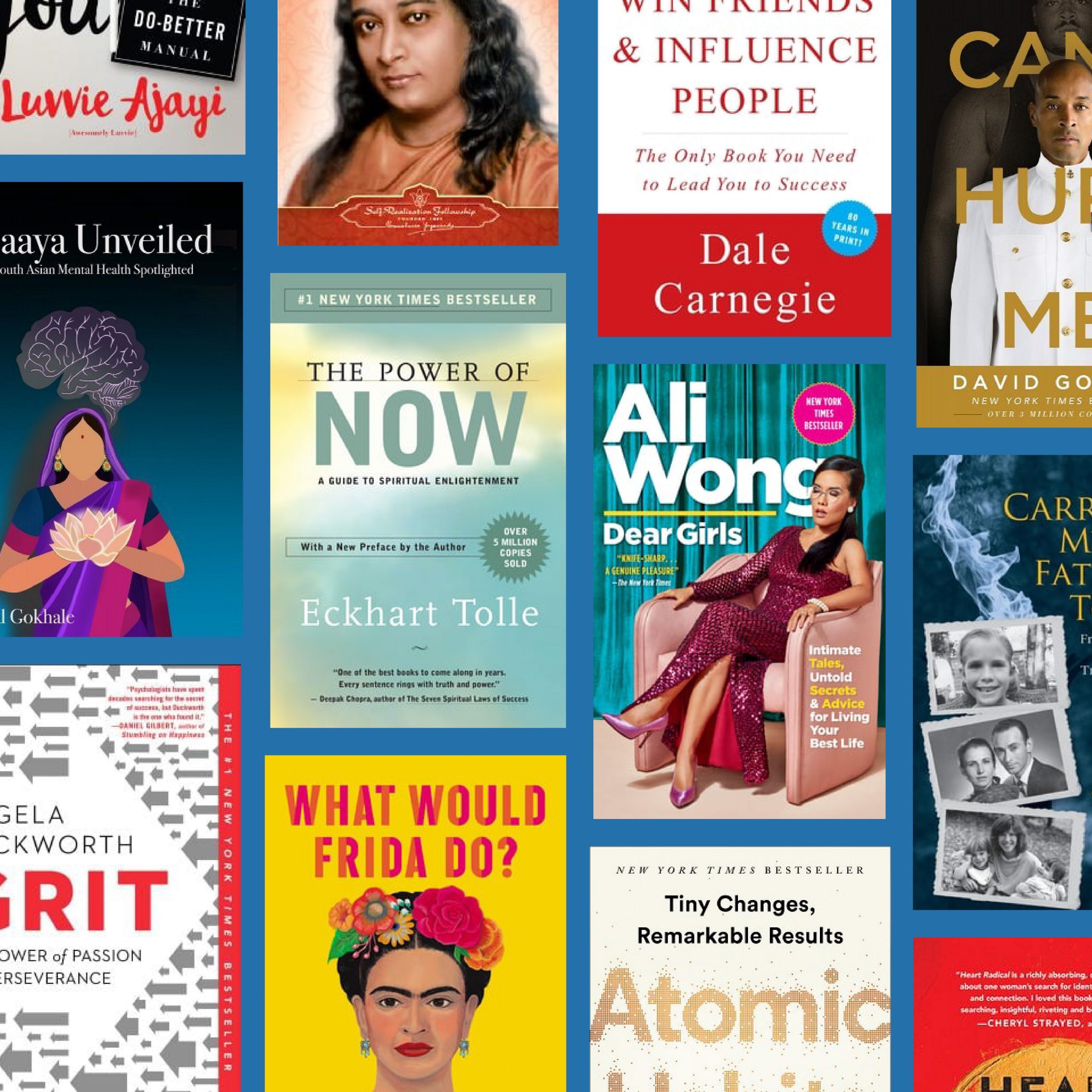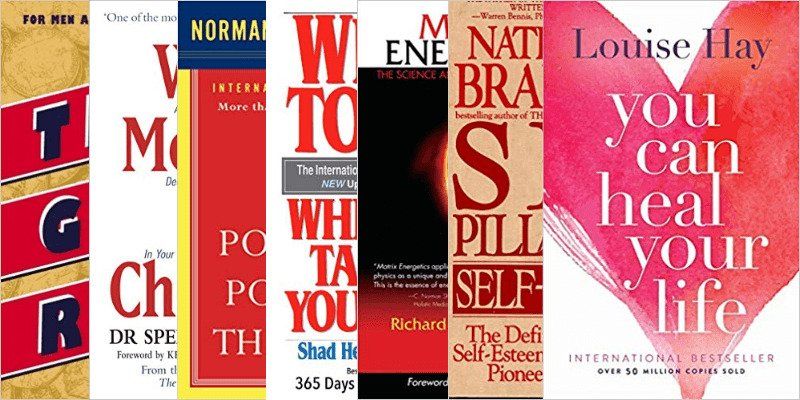The best books for self-improvement and personal development

Atomic Habits by James Clear
Overview and key concepts
Atomic Habits by James Clear is a powerful self-improvement book that offers practical advice on how to make positive changes in our lives by focusing on small, incremental habits. Clear emphasizes the idea that small habits, when consistently practiced, can lead to remarkable results. He introduces the concept of the “four laws of behavior change,” which include making habits obvious, attractive, easy, and satisfying. Clear also stresses the importance of focusing on systems rather than goals, as our habits shape our identity and ultimately determine our success.
Practical strategies for building good habits
Clear provides readers with practical strategies for building good habits. This includes the idea of habit stacking, where new habits are formed by linking them to existing habits. He also advocates for the use of implementation intentions, which involves planning in advance when and where we will perform a specific habit. Clear encourages readers to focus on small, manageable actions and to track their progress to stay motivated.
Breaking bad habits and overcoming obstacles
In addition to building good habits, Atomic Habits offers valuable insights on breaking bad habits and overcoming obstacles. Clear provides strategies for identifying the underlying causes of our bad habits and offers practical techniques for replacing them with healthier alternatives. He emphasizes the importance of understanding the “habit loop” and provides strategies for interrupting it. Clear also highlights the impact of our environment on our habits and provides guidance on how to design an environment that supports our desired behaviors.
Overall, Atomic Habits is a compelling and actionable guide to creating positive change in our lives. It offers practical strategies and insights that can help readers build good habits, break bad ones, and ultimately achieve their goals.

The 7 Habits of Highly Effective People by Stephen R. Covey
In today's fast-paced and competitive world, personal development has become more important than ever. One of the most influential books in this field is “The 7 Habits of Highly Effective People” by Stephen R. Covey. This book provides valuable insights and practical advice on how to become more productive, fulfilled, and successful in both personal and professional life.
Understanding the 7 habits and their impact
The book introduces seven habits that Covey believes are crucial for achieving personal effectiveness. These habits include being proactive, beginning with the end in mind, prioritizing, thinking win-win, seeking first to understand, synergizing, and continuous self-improvement. Covey explains these habits in detail and illustrates their impact on personal growth and success.
Applying the habits in everyday life
Covey emphasizes the importance of integrating these habits into our daily routines. He provides practical exercises and examples that help readers implement the habits and make meaningful changes in their lives. By following and consistently practicing these habits, individuals can transform their mindset and approach to challenges, leading to increased productivity and personal fulfillment.
Enhancing personal and professional relationships
One of the key benefits of adopting the habits outlined in this book is the improvement of personal and professional relationships. Covey stresses the importance of empathy, effective communication, and collaboration. By applying the principles in the book, individuals can build stronger connections with others, resolve conflicts more effectively, and foster healthy relationships.
Overall, “The 7 Habits of Highly Effective People” is a transformative book that equips individuals with the tools and mindset needed to excel in all areas of life. It offers timeless wisdom and actionable advice that can benefit anyone who seeks personal growth and success.

Mindset: The New Psychology of Success by Carol S. Dweck
Mindset: The New Psychology of Success by Carol S. Dweck is a self-improvement book that delves into the power of mindset and how it can impact personal development. With a friendly and approachable tone, this book provides valuable insights and practical strategies to help readers cultivate a growth mindset.
Fixed vs. growth mindset: Understanding the difference
Dweck introduces the concept of mindset and highlights the key differences between a fixed mindset and a growth mindset. A fixed mindset believes that intelligence and abilities are fixed traits, while a growth mindset sees these qualities as malleable and believes in the power of effort and learning. By understanding the distinction, readers can gain a new perspective on their own beliefs and behaviors.
Nurturing a growth mindset for personal development
The book offers guidance on how to develop and nurture a growth mindset. Dweck emphasizes the importance of embracing challenges, persevering through setbacks, and seeking opportunities for growth. She provides practical tips and exercises that readers can incorporate into their daily lives to cultivate a mindset that thrives on continuous improvement.
Overcoming self-limiting beliefs and embracing challenges
One of the key aspects of personal development is overcoming self-limiting beliefs. Dweck explores how fixed mindset thinking can hold individuals back from reaching their full potential and provides strategies to overcome these limitations. By reframing failures as opportunities for growth and embracing challenges, readers can unlock their true potential and achieve greater success.
With its insightful content and actionable advice, “Mindset: The New Psychology of Success” is a must-read for anyone looking to enhance their personal development journey and unleash their full potential.

The Power of Now by Eckhart Tolle
In the realm of self-improvement literature, few books have had as profound an impact as “The Power of Now” by Eckhart Tolle. This thought-provoking guide offers valuable insights and practical techniques to help individuals live a more fulfilling and present-centered life.
Exploring the concept of living in the present moment
Tolle invites readers to shift their perspective and embrace the power of the present moment. By letting go of regrets about the past and worries about the future, individuals can experience a deeper sense of peace and fulfillment. Through relatable anecdotes and clear explanations, Tolle guides readers to develop a greater awareness of their thoughts and emotions, enabling them to make conscious choices and find joy in the present.
Practicing mindfulness and achieving inner peace
“The Power of Now” encourages readers to cultivate a practice of mindfulness. Tolle introduces simple techniques to quiet the mind and connect with the present moment, such as focusing on the breath or observing your surroundings without judgment. By incorporating these practices into daily life, individuals can reduce stress, increase clarity, and experience a greater sense of inner peace.
Letting go of past regrets and future anxieties
One of the key teachings in “The Power of Now” is the importance of letting go of attachments to the past and future. Tolle emphasizes that dwelling on past mistakes or worrying about the future only serves to distract individuals from the present moment. By embracing acceptance and surrendering to what is, individuals can break free from the cycle of suffering and find true freedom and happiness.

How to Win Friends and Influence People by Dale Carnegie
Looking for ways to improve your personal and professional relationships? Look no further than Dale Carnegie's timeless classic, “How to Win Friends and Influence People.” This book, first published in 1936, continues to be a go-to resource for individuals seeking personal development and effective communication skills.
Building meaningful connections and effective communication
Carnegie's book emphasizes the importance of building genuine connections with others. He provides valuable insights into principles such as active listening, showing appreciation, and expressing empathy. By implementing these techniques, readers can enhance their communication skills and forge stronger relationships with colleagues, friends, and family.
Persuasion techniques for positive relationships
One of the key aspects of “How to Win Friends and Influence People” is its focus on persuasion and influence. Carnegie explains how to motivate and inspire others without resorting to manipulation or deceitful tactics. Through stories and examples, readers learn how to communicate effectively, present their ideas persuasively, and win others over to their point of view.
Influencing others through empathy and understanding
Carnegie highlights the importance of understanding others' perspectives and practicing empathy. By putting oneself in someone else's shoes, readers can establish rapport, diffuse conflicts, and build consensus. The book provides practical strategies for dealing with difficult people and resolving conflicts in a respectful and constructive manner.
“How to Win Friends and Influence People” offers valuable lessons that can be applied to personal and professional relationships alike. By mastering the principles discussed in this book, individuals can become more influential, persuasive, and successful in their interactions with others. So, why wait? Start reading today and unlock the secrets to building meaningful connections and improving your communication skills.

The 5 Second Rule by Mel Robbins
Mel Robbins' The 5 Second Rule is a game-changing self-improvement book that introduces a simple yet powerful technique to overcome procrastination and self-doubt. This book is a must-read for anyone looking to make positive changes in their life and achieve their goals.
Understanding the power of taking immediate action
One of the core concepts of The 5 Second Rule is the idea that taking immediate action is key to making positive changes. The book explains that our brains are wired to protect us from discomfort and uncertainty, often leading us to hesitate or procrastinate. By counting backwards from 5 and taking action before our brain has time to sabotage us, we can bypass these tendencies and make progress towards our goals.
Overcoming procrastination and self-doubt
Robbins dives deep into the reasons behind procrastination and self-doubt and provides practical strategies for overcoming these common obstacles. Through personal anecdotes, scientific research, and actionable advice, she shows readers how to break free from the cycle of self-sabotage and develop a mindset of confidence and productivity.
The 5 Second Rule is not just a book about pushing yourself to take action; it also emphasizes the importance of self-compassion and celebrating small victories. Robbins encourages readers to focus on progress rather than perfection, creating a positive and empowering mindset that fuels motivation and success.
In conclusion, The 5 Second Rule offers a refreshing approach to personal development, urging readers to take immediate action, overcome self-doubt, and embrace a growth mindset. With its practical techniques and inspiring stories, this book is a valuable resource for anyone seeking self-improvement and success in all areas of life.

The Subtle Art of Not Giving a F\*ck by Mark Manson
The Subtle Art of Not Giving a F\*ck by Mark Manson is a provocative self-improvement book that challenges societal norms and offers a refreshing perspective on finding true happiness. In a society obsessed with positivity and constant improvement, Manson argues that it is okay to not care about everything and to focus on what truly matters to you.
Challenging societal norms and finding true happiness
Manson explores the notion that our obsession with always being happy and striving for success can actually lead to dissatisfaction and discontentment. He encourages readers to embrace their flaws and imperfections and to realign their values to lead a more fulfilling life. By challenging societal norms and rejecting the pressure to conform, individuals can discover what truly brings them happiness and meaning.
Prioritizing values and choosing what matters most
One of the key takeaways from the book is the importance of identifying and prioritizing personal values. Manson emphasizes that we should only invest our time and energy in things that align with our core values. By choosing what truly matters to us and letting go of the things that don't, we can create a more meaningful and purposeful life.
The Subtle Art of Not Giving a F\*ck offers a refreshing and irreverent perspective on self-improvement. Through personal anecdotes, humor, and practical advice, Manson challenges readers to let go of societal expectations and instead focus on what brings them true happiness and fulfillment.

